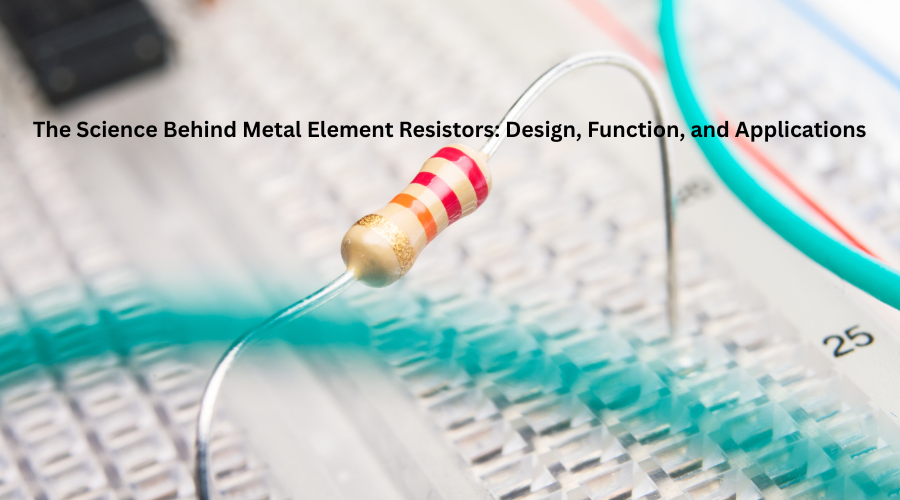Why Your Project Needs a Reliable Shunt Resistor Supplier: Avoiding Costly Failures
- laifutechco
- Jul 18
- 4 min read

In the world of electrical engineering and electronics manufacturing, even the smallest components can make or break a project. Among these often-overlooked heroes is the shunt resistor—a critical component used for current measurement, energy management, and circuit protection. While choosing the right resistor is essential, selecting a reliable shunt resistor supplier is just as crucial. A poor-quality supplier could jeopardize your entire project, leading to delays, inaccuracies, or even catastrophic equipment failures.
In this blog, we'll walk you through why partnering with a dependable supplier matters, the risks of choosing the wrong one, and what to look for when sourcing your shunt resistors.
What Is a Shunt Resistor and Why Does It Matter?
A shunt resistor is a precise, low-resistance component designed to create a small voltage drop across itself when current flows through. This voltage drop can be measured and utilized to determine the current, making it vital in systems like:
Battery Management Systems (BMS)
Electric vehicles (EVs)
Power supplies
Industrial automation
Renewable energy systems
Its role in ensuring accurate current sensing and system protection means even minor errors in performance or quality can lead to significant consequences, such as equipment damage, inefficiency, or data inaccuracies.
The Hidden Risks of Choosing the Wrong Supplier
Many engineers focus on specifications, design, and performance, but overlook the importance of sourcing. Choosing the wrong supplier isn't just a procurement issue; it's a project-wide risk. Here's why:
1. Inconsistent Quality
A low-grade supplier may deliver products with variable resistance values, temperature coefficients, or tolerances, leading to inaccurate readings and unpredictable behavior.
2. No Certifications or Standards
Suppliers that don't follow international standards like ISO 9001 or RoHS compliance may offer non-reliable parts that fail to meet safety and performance requirements.
3. Lack of Technical Support
Engineering teams often need help with custom values, footprints, or thermal performance. Without proper technical support, you're left troubleshooting on your own.
4. Delayed Deliveries
Late or inconsistent deliveries from your supplier can derail production timelines, creating bottlenecks and added costs.
5. Counterfeit Components
Unfortunately, counterfeit resistors are a real concern. Trusted suppliers ensure full traceability and genuine materials, reducing the risk of fake components.

Benefits of Partnering with a Trusted Supplier
Choosing a reputable supplier isn't just a logistical win—it's a strategic move. Here's what a solid partnership brings to the table:
Precision and Reliability
Top suppliers provide tight tolerance resistors with minimal variation. This consistency ensures accurate current measurement even under fluctuating loads or temperatures.
Customization Options
Need a unique resistance value or specific packaging for your design? A quality supplier can offer tailor-made solutions, not just off-the-shelf parts.
Fast, Consistent Lead Times
Reliable suppliers understand the importance of delivery. They maintain stock levels, have efficient logistics systems, and provide transparent timelines.
Engineering Support
Have a technical question? The best suppliers offer engineering consultation, datasheet clarity, and thermal modeling assistance when needed.
Long-Term Availability
Designing a product for mass production? You need assurance that the part you design around today will still be available years from now. Top-tier suppliers offer stable sourcing and lifecycle visibility.
What to Look For in a Supplier Of Shunt Resistor
So, how do you evaluate potential suppliers to avoid costly failures? Here are some qualities to prioritize:
Certifications and Quality Standards
Ensure the supplier is ISO-certified and complies with RoHS, REACH, and other international safety and environmental guidelines.
Proven Track Record
Check reviews, case studies, and customer testimonials. Long-standing partnerships with OEMs or global electronics brands are a strong indicator of supplier reliability.
Material Transparency
Trustworthy suppliers disclose details about their materials, such as alloy composition, substrate material, and protective coatings.
Technical Support and Resources
Whether you need assistance with resistor sizing or thermal behavior, the supplier should offer dedicated engineering support.
Clear Datasheets and Documentation
Comprehensive, well-structured datasheets are a sign that the supplier values clarity and reliability.
Real-World Scenarios: How Bad Suppliers Can Ruin a Project
Case 1: EV Startup Fails Compliance Test
An electric vehicle startup sourced low-cost shunt resistors from an unverified supplier. During final testing, the resistors showed excessive drift in high-temperature conditions, leading to current measurement errors and eventual test failure. The entire launch was delayed by six months.
Case 2: Industrial Robot Malfunction
An automation company experienced recurring failures in a robotic arm system. After an investigation, it was found that non-uniform resistor values from a poor supplier caused voltage measurement fluctuations, affecting actuator control.
These examples highlight the essential value of a dependable supplier in ensuring your product functions as expected.
How a Reliable Supplier Saves You Money (Even if It Costs More Upfront)
While high-quality components might come at a slightly higher price, they prevent expensive downstream issues like:
System failures
Recalls or reworks
Extended testing and validation
Lost customer trust
In short, the true cost of a bad supplier is far greater than the sticker price of a resistor.
Conclusion: Don't Let a Small Component Derail Your Big Plans
In today's competitive and fast-paced engineering landscape, every detail counts—especially when it comes to component sourcing. A shunt resistor might be small, but the impact of choosing the wrong supplier is massive.
By partnering with a trusted supplier, you're not just buying components—you're investing in accuracy, performance, reliability, and peace of mind.
Don't let a subpar supplier be the weakest link in your project. Vet carefully, invest wisely, and always prioritize long-term quality over short-term savings.
FAQs
What industries commonly use shunt resistors?
Shunt resistors are widely used in automotive (especially EVs), energy management, industrial automation, medical equipment, aerospace, and consumer electronics.
How do I know if a supplier of shunt resistor is reliable?
Look for certifications, customer reviews, consistent product specs, and availability of technical support. A reliable supplier also offers traceable components and transparent documentation.
Are custom shunt resistor values possible?
Yes! Many premium suppliers offer custom resistance values, temperature coefficients, and form factors to match your specific application needs.
Why not just choose the cheapest supplier?
Low-cost suppliers often cut corners on quality, testing, and materials. This can lead to performance issues, failed certifications, or production delays, costing more in the long run.




Comments